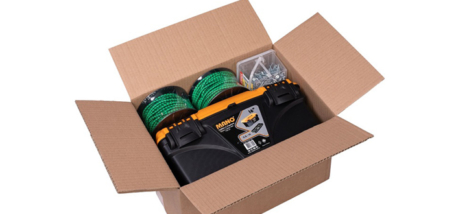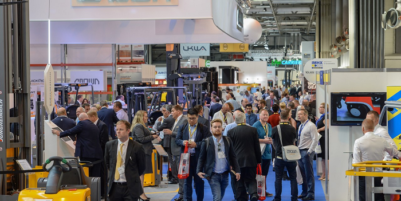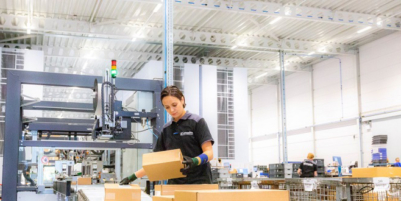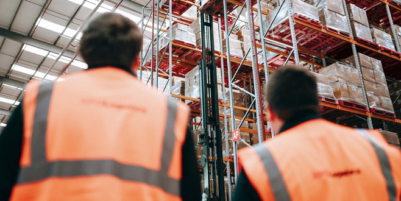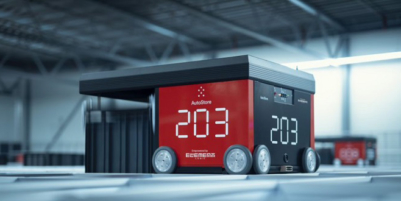-
Nutrivend selects Forterro’s Orderwise to support online expansion and streamline operations - April 11, 2025
-
ARROWXL LAUNCHES AMBITIOUS ZERO WASTE ROADMAP - April 8, 2025
-
THE BCMPA’S NEW CAMPAIGN DRIVES OUTSOURCING SUCCESS IN Q1 - April 7, 2025
-
BLACKOUT TECHNOLOGIES TARGETS TELEMATICS-INTEGRATED MOBILE DEVICE BLOCKING TO COMBAT SMARTPHONE DISTRACTION - April 1, 2025
-
Sparck Technologies awarded Royal designation - March 27, 2025
-
OpenADR Alliance announces first OpenADR 3.0 certified products with EVoke Systems, E.ON Energy and Universal Devices - March 25, 2025
-
Growing fulfilment and contract packer appoints new Managing Director - March 25, 2025
-
When is it time to invest in a WMS? Understanding the key trigger points - March 25, 2025
-
eCapital helps Vantage Recruitment on its journey to financial success - March 24, 2025
-
Hugo Beck Celebrates 70 Years of Packaging Innovation with Open House Events - March 20, 2025
A commitment to sustainable packaging helps internet retailers to avoid provoking ‘oversized box rage’
Evolving legislation, advances in technology and pressure to meet the expectations of increasingly environmentally conscious consumers are driving more companies to implement sustainable packaging strategies across their supply chains.
With an estimated 5 billion corrugated boxes used in the UK each year and some 32 million tonnes of paper and cardboard dumped at recycling sites across Europe annually, it is important that online retailers and their fulfilment partners – who are among the biggest users of cardboard packaging material – embrace a commitment to sustainable and more eco-friendly packaging. Critically, businesses should consider it not only as a key component of their corporate social responsibility efforts, but also as a way of optimising both operational and financial efficiency and driving supply chain performance.
“Sustainability was once viewed by many company leaders as little more than a public relations device,” says .Jo Bradley, Business Development Manager for packaging solutions at Quadient. “However,” she continues, “it is no longer considered to be at odds with the need to generate profits. In fact, it can be demonstrated that businesses across all sectors that operate in a sustainable way not only minimise costs, but also become more innovative and build brand value.”
Reducing the amount of packing materials used should be at the heart of any company’s sustainable packaging programme, but 2020’s Covid-induced internet shopping boom resulted in a substantial and sustained hike in the amount of cardboard required by internet traders to construct the boxes that protect their e-commerce orders in transit. And, even now that non-essential high street stores are starting to re-open, few forecasters are predicting a notable drop off in online shopping transactions, so demand for cardboard packaging looks set to remain high.
Of course, a simple way for internet retailers and the logistics companies who fulfil orders on their behalf to slash the volume of cardboard that they use across their business is to ensure that, when goods are being packed prior to leaving the warehouse, they are put into an appropriately sized cardboard box.
“A recent survey highlighted that nearly 50 per cent of the people who do their shopping online consider ‘excessive packaging’ to be the ‘most annoying thing’ about the internet retailing experience, “ says Jo Bradley.
“And yet,” she continues, “time and again goods are shipped in boxes that are way too big. This is not only bad for the environment but it costs the retailer money in raw material and transit costs.”
But now, savvy e-commerce companies who wish to bring immediate bottom-line benefits to their business and, of course, steer clear of provoking ‘oversized box rage’ among their customers, are adopting eco-conscious packaging technology that creates fit-to-size boxes for every consignment.
“Typically, these machines – such as the CVP Impack and CVP Everest autopackers from Quadient – offer a 30% per cent saving in the use of cardboard plus the ability to completely eliminate the need for void filling materials,” says Jo Bradley.
Using 3D scanning technology, Quadient’s automated packaging systems size, construct, weigh and label each individual order – regardless of whether it is made up of individual or multiple items.
The CVP Impack and CVP Everest fit-to-size automated packaging systems from Quadient use 3D scanning technology to size, construct, weigh and label each individual order – whether of individual or multiple items. With a cycle time as short as three seconds the CVP Everest can do the work of up to 20 packing stations – constructing up to 1,100 fit-to-size boxes per hour.
Jo Bradley adds: “As part of a broader commitment to drive sustainability and cut waste across the supply chain, many of today’s leading internet retailers are remodelling their approach to the packing function by turning to fit-to-size packaging equipment. And, with UK companies now able to take advantage of the Government’s new tax ‘super-deduction’ policy which allows them to cut their tax bill by up to 25p for every £1 they invest in new machinery, there has never been a better time to introduce the benefits of fit-to-size packaging solutions.”




























